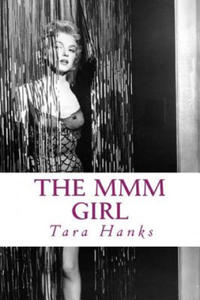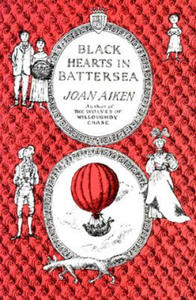krainaksiazek a waif of the plains 25887917
- znaleziono 11 produktów w 4 sklepach
A Waif Of The Plains (Classic Reprint)
Książki Obcojęzyczne>Angielskie>Children
0x00b0947800000000
Sklep: Gigant.pl
A Waif Of The Plains (Classic Reprint)
Książki Obcojęzyczne>Angielskie>Children
0x00006a7b00000000
Sklep: Gigant.pl
A Waif Of The Plains, The Ancestors Of Peter Atherly, And Other Tales (Classic Reprint)
Książki Obcojęzyczne>Nieprzypisane
0x002dea3800000000
Sklep: Gigant.pl
A Waif Of The Plains And Other Tales (Classic Reprint)
Książki Obcojęzyczne>Nieprzypisane
0x000df3d100000000
Sklep: Gigant.pl
Letter from America Penguin
Powieści i opowiadania
When Alistair Cooke retired in March 2004 and then died a few weeks later, he was acclaimed by many as one of the greatest broadcasters of all time. His Letters from America, which began in 1946 and continued uninterrupted every week until early 2004, kept the world in touch with what was happening in Cooke's wry, liberal and humane style. This selection, made largely by Cooke himself and supplemented by his literary executor, gives us the very best of these legendary broadcasts. Over half have never appeared in print before. It is a remarkable portrait of a continent - and a man. Fred Astaire 26 June 1987 Movie stars don't make it. Nor statesmen. Not Prime Ministers, or dictators unless they die in office. Not even a world-famous rock star, unless he's assassinated. But last Monday, none of the three national television networks hesitated about the story that would lead the evening news. On millions of little screens in this country and I don't doubt in many other countries around the world, the first shots were of an imp, a graceful wraith, a firefly in impeccable white tie and tails. And for much longer than the lead story usually runs, for a full five minutes on NBC, we were given a loving retrospective of the dead man, ending with the firm declaration by Nureyev that 'He was not just the best ballroom dancer, or tap dancer, he was simply the greatest, most imaginative, dancer of our time.' And the newsmen were right to remind us of the immortal comment of the Hollywood mogul, who, with the no-nonsense directness of an expert, reported on Fred Astaire's first film test: 'Has enormous ears, can't act, can't sing, dances a little.' That Hollywood mogul, long gone, spent his life ducking round corners, to avoid being identified as the oaf who looked in the sky and never saw the brightest star. However, that expert opinion was, as the lawyers say, controlling at the time and in Astaire's first movies, there was no thought of allowing him to act or sing. But not for long. And thanks to the invention of television, and the need to fill vast stretches of the afternoon and night with old movies, it has been possible for my daughter, for instance, to claim Fred Astaire as her favourite film star from the evidence of all the movies he made fifteen, ten, five, three years before she was born. When I got the news on Monday evening here, and realized with immediate professional satisfaction that the BBC had smartly on hand a musical obituary tribute to him I put together eight years ago, I couldn't help recalling the casual, comic way this and similar radio obituaries came about. I was in London at the end of 1979, and Richard Rodgers - one of the two or three greatest of American songwriters - had just died, I believe on New Year's Eve or the night before. Britons, by then, were getting accustomed, without pain, to making what used to be a two-day Christmas holiday into a ten-day much-needed rest. For all laborious research purposes, the BBC was shut up. And there was no retrospective programme on the life and music of Richard Rodgers in the BBC's archives. Of course, in a gramophone library that looks like an annex to the Pentagon, there were hundreds, perhaps thousands, of recordings of his songs. The SOS went out to a writer, a producer, and - I presume - a man who had the key to the gramophone library. The silent place was unlocked, and the three of them laboured through the day to put together an hour's tribute to Richard Rodgers. It was done. It was competent enough, but rushed to an impossible deadline. This hasty improvisation happened just when my own music producer and I, who had enjoyed working together for six years or so on American popular music, were wondering what we could offer next. We'd done a sketch history of jazz, through individuals. We'd gone through all the popular music of the 1920s, 1930s and 1940s, and were stumped for a new series, at which point I asked if we mightn't go and talk to the head of the channel, network or whatever. We went in, and the genial boss asked me what we had in mind. 'A morgue,' I said. A what? 'Where', I asked, 'is your morgue?' He was not familiar with the word, a newspaper term. 'Well,' I said, 'all newspapers have them.' 'How d'you mean?' 'If, I explained, 'Mrs Thatcher died tonight and you woke up and read a two-sentence obituary, you'd be rightly outraged. But if you saw a two-page obituary, you'd take it for granted. When d'you suppose it was written?' 'That's right,' he said thoughtfully. What I was proposing was a morgue of the Americans eminent in popular music and jazz, so they'd not get caught short again. A splendid idea, the man said; pick your stars. We made a list and were commissioned to return to America and finish all of them. Naturally, we looked at a calendar, and birthdates of Hoagy Carmichael, Earl Hines, Harold Arlen, Ethel Merman, Stephane Grappelli, Ella Fitzgerald. But then, in a spasm of panic, we thought of two giants - if the word can be used about two comparative midgets: Irving Berlin and Fred Astaire. Berlin was then 91. And Fred Astaire was just crowding 80. The boss man, to whom the idea of a morgue had been, only a few minutes before, quaint if not morbid, wondered what we were waiting for. Better get busy, at once, on Berlin and then on Astaire. I remember doing the Astaire obit, then and there, while I was still in London. Meanwhile, we'd simply pray every night that the Lord would keep Irving Berlin breathing till I could get home and get busy. I remember being picked up in a car by a charming young girl to get to the BBC and record my Astaire narration - there wasn't a moment to lose. She asked me, in the car, what the script was that I was clutching. 'It's an obituary', I said, 'of Fred Astaire.' 'Fred Astaire,' she shrieked, 'dead?' and almost swerved into a bus. 'Of course, he's not dead,' I said, 'but he's going to be one day.' She, too, was new to the institution of a morgue. I recalled that when I was a correspondent for a British paper in the United States, and when for example. Dean Acheson was appointed Secretary of State, the first cable I had from my editor said, 'Welcome Acheson obituary soonest.' How ghoulish, she said. I imagine that to two generations at least, it's assumed that Fred Astaire, this slim, pop-eyed newcomer to Hollywood who couldn't act, couldn't sing, danced a little, only made a fool of the mogul through the movies he made, with Ginger Rogers, in the mid- and late 1930s. But long before then, from the mid-1920s on, he was already an incomparable star - as a dancer - to theatre audiences both in New York and in London. Perhaps more in London than anywhere, certainly in the 1920s, with the early Gershwin hits, Funny Face and Lady Be Good, and lastly, in 1933, in Cole Porter's Gay Divorce (which was the title of the theatre show; Hollywood would not then allow so shocking a title and called the movie version, The Gay Divorcee). Of all the thousands of words that have been written this week, and will be written, there is a passage I went back to on Tuesday night which, I think, as well as anything I know, sums up Astaire's overall appeal - the appeal that takes in but transcends one's admiration for his dancing and for his inimitably intimate singing style. This was written in November 1933, by a theatre critic who had so little feel for dancing that he marvelled why London should go on about 'Mr Astaire's doing well enough what the Tiller Girls at Blackpool do superbly'. The critic, the writer, was James Agate, the irascible, dogmatic, opinionated but brilliant journalist, and I believe the best critic of acting we have had this century. He is writing his review of Gay Divorce, after declaring yet again his contempt for musical comedy as an entertainment for idiots, deploring the play's plot and the acting and hoping 'Micawberishly, for something to turn up'. 'Presently,' he wrote, 'Mr Fred Astaire obliged, and there is really no more to be said.' Except
Sklep: Albertus.pl
The Mmm Girl Createspace Independent Publishing Platform
Książki / Literatura obcojęzyczna
"Nothing lasts forever...all we can do is shine, or just survive." Who was Marilyn Monroe? She began as Norma Jeane, the Los Angeles waif who dreamed of being a movie star. The camera worshipped her, and she became America's greatest sex symbol. For thirty
Sklep: Libristo.pl
Black Hearts in Battersea Houghton Mifflin Harcourt
Książki / Literatura obcojęzyczna
Simon, the foundling from The Wolves of Willoughby Chase, arrives in London to meet an old friend and pursue the study of painting. Instead he finds himself unwittingly in the middle of a wicked crew's fiendish caper to overthrow the good King James and the Duke and Duchess of Battersea. With the help of his friend Sophie and the resourceful waif Dido, Simon narrowly escapes a series of madcap close calls and dangerous run-ins. In a time and place where villains do nothing halfway, Simon is faced with wild wolves, poisoned pies, kidnapping, and a wrecked ship. This is a cleverly contrived tale of intrigue and misadventure.
Sklep: Libristo.pl
Ghost in Monte Carlo Barbaracartland.com Ltd
Książki / Literatura obcojęzyczna
Eighteen-year-old Mistral is an innocent abroad in the sophisticatedCote D?Azur, where princes and millionaires mingle in the casinos andsumptuous hotels while others plot to relieve them of their riches.Accompanied only by her embittered and domineering Aunt Emilie and kindly servant Jeanne, Mistral appears dressed all in grey like aghost in the salons and ballrooms of Monte Carlo and sets Society?stongues wagging. It?s not long before her waif-like beauty has menfalling at the feet of Madamoiselle Fantóme ? gentlemen such as SirRobert Stanford.But on her sister?s bewildering but strictinstructions, she must not converse with any but the Russian PrinceNikolai, who?s also keen to woo her, as is an opulent IndianRajah?Something about Mistral touches Sir Robert?s heart ? and hecannot understand why Mistral appears afraid to be with him. Yet bothof them crave love. Only if Mistral?s innocent eyes are finally opened to the truth ? that Aunt Emilie?s motives are borne not of concernfor her niece but of pure evil and greed ? will she find her heart?sdesire?
Sklep: Libristo.pl
Sklepy zlokalizowane w miastach: Warszawa, Kraków, Łódź, Wrocław, Poznań, Gdańsk, Szczecin, Bydgoszcz, Lublin, Katowice
Szukaj w sklepach lub całym serwisie
1. Sklepy z krainaksiazek pl a waif of the plains 25887917
2. Szukaj na wszystkich stronach serwisu
t1=0.038, t2=0, t3=0, t4=0.026, t=0.038











